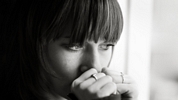|
|
 Acne (1,500) Acne (1,500)
 Addictions (1,500) Addictions (1,500)
 Advice (1,500) Advice (1,500)
 Allergies (1,092) Allergies (1,092)
 Alternative Medicine (1,500) Alternative Medicine (1,500)
 Anti Aging (1,500) Anti Aging (1,500)
 Breakup (1,500) Breakup (1,500)
 Cancer (1,499) Cancer (1,499)
 Dental Care (1,500) Dental Care (1,500)
 Disabilities (1,500) Disabilities (1,500)
 Divorce (1,500) Divorce (1,500)
 Elderly Care (1,498) Elderly Care (1,498)
 Goal Setting (1,500) Goal Setting (1,500)
 Hair Loss (1,500) Hair Loss (1,500)
 Health and Safety (1,497) Health and Safety (1,497)
 Hearing (1,500) Hearing (1,500)
 Law of Attraction (1,499) Law of Attraction (1,499)
 Marriage (1,500) Marriage (1,500)
 Medicine (1,497) Medicine (1,497)
 Meditation (1,499) Meditation (1,499)
 Men's Health (1,500) Men's Health (1,500)
 Mental Health (1,500) Mental Health (1,500)
 Motivational (1,500) Motivational (1,500)
 Nutrition (1,495) Nutrition (1,495)
 Personal Injury (1,499) Personal Injury (1,499)
 Plastic Surgeries (1,500) Plastic Surgeries (1,500)
 Pregnancy (1,496) Pregnancy (1,496)
 Psychology (1,500) Psychology (1,500)
 Public Speaking (1,500) Public Speaking (1,500)
 Quit Smoking (1,500) Quit Smoking (1,500)
 Religion (1,499) Religion (1,499)
 Self Help (1,500) Self Help (1,500)
 Skin Care (1,500) Skin Care (1,500)
 Sleep (1,500) Sleep (1,500)
 Stress Management (1,500) Stress Management (1,500)
 Teenagers (1,492) Teenagers (1,492)
 Time Management (1,500) Time Management (1,500)
 Weddings (1,500) Weddings (1,500)
 Wellness (1,500) Wellness (1,500)
 Women's Health (1,500) Women's Health (1,500)
 Women's Issues (1,500) Women's Issues (1,500)
|
You may have heard some alarming health news recently, about how working the 'graveyard shift' may increase your odds for developing breast or prostate cancer. This story is based on recent research, over the last 20 years, that does, indeed, find an increased rate of breast cancer among women who work at night. But, please keep in mind that high cancer rates, that have been newly discovered in night workers, does not prove that nighttime work, alone, causes one to get cancer.
It is estimated that about 20 percent of the work force in technologically developed countries work the night shift. One of the first people to spot the night shift-cancer connection was Richard Stevens, a cancer epidemiologist and professor at the University of Connecticut Health Center. In 1987 he published a paper suggesting that there may be a a direct correlation to light at night and breast cancer.
Stevens says, "suspiciously, the incidence of breast cancer rates shot up, starting in the 1930's, where industrialized cultures considered it advantageous to progressively increase one's income".
At the time of Steven's first observations, most medical research scientists considered the link, between light at night to increased breast cancer rates, to be pretty weird and wacky. However, over the last 20 years, ongoing research on this disturbing news has continued. There is some compelling evidence that indicates that men working the night shift may also have an increased risk of developing prostate cancer.
It is also interesting to note, that in laboratory research studies with test animals, evidence of the light at night theory, supported Steven's original idea. When light/dark schedules were purposely disrupted, the animals developed more cancerous tumors and died prematurely.
Since the 1980's, the cancer connection to artificial light at night has received quite a bit of attention. There seems to be enough evidence to support the notion that there is a questionable pattern of increased cancer rates in night, and rotational, shift workers.
If you are a night worker do not panic, and determine that you simply must abandon your current job for personal health safety reasons. Also, consider that these ongoing studies are only one small piece of evidence to a very large puzzle. There are many other risk factors involved in developing cancer. In all fairness, other known cancer risks should also be evaluated into this equation as well, like:
1.Lifestyle choices such as exercise habits, substance abuse problems, or drug addictions
2.Daily dietary food and beverage intakes.
3.Sleep deprivation problems such as insomnia and depression.
4.Amount of exposure time that bare skin has a chance to connect with UV sunlight rays, and vitamin D levels.
5.Amount of emotional stress levels in relation to unresolved personal issues.
All of those key factor risks, and many others, as well as a wider variety of test subjects need to be extensively studied. Most of the current, light at night research studies, so far, have only been performed on the nursing profession and airline crews.
What researchers are suggesting, though, is that there seems to be a rather complicated system, of some sort, to lower levels of melatonin and serotonin in correlation to rotational, and night, shift workers. Melatonin is a endocrine system hormone produced by the pineal gland that helps induce sleep, and is gradually released after dark. The pineal gland is located deep in the center of the brain behind the center point in the forehead between the eyes, and is known to have a reaction to sunlight exposure. It is believed that sunlight exposure coming in through the eyes for approximately 20 minutes a day, without contacts, eyeglasses, or sunglasses appears to play an important role in the releasing of melatonin.
Clearly, when normal sleep/wake (also called circadian rhythm) cycles are interrupted with artificial lighting at night there may be a steep health price to pay, for the sake of earning a living. Long-term supplementation with melatonin is not advisable, either, as it may eventually interfere with your body's ability to produce it on its own. Use, instead, one of melatonin's safer precursors like L-tryptophan or 5-hydroxytryptophan (5-HTP). Be advised , that L-tryptophan is only obtainable by presription, however, do not let that intimidate you as it is only a simple amino acid.
As an employer you may consider it financially necessary to use night shifts to voluntarily maximize your company's profits. But, you may also want to consider employee medical health insurance liabilities, and productivity, too. There might just possibly be lower health insurance rate incentives offered for installing healthier, natural spectrum lighting systems in work station areas, This may help you save even more money, by lowering your energy costs as well.
If you are a rotational, or night, shift worker, sleeping in a darkened room is a must. Do whatever it takes to eliminate, or reduce, light from entering your sleeping environment. You can also improve the quality of your sleep by learning how to practice better sleep hygiene habits. Visit the mercola natural health website and type in the search box, '33 secrets to a good nights sleep'.
Above all, listen to your body, if working after dark is causing you various health problems, pay close attention! Treat your symptoms with care, put in for a shift change, or find another job.
|
|
|



